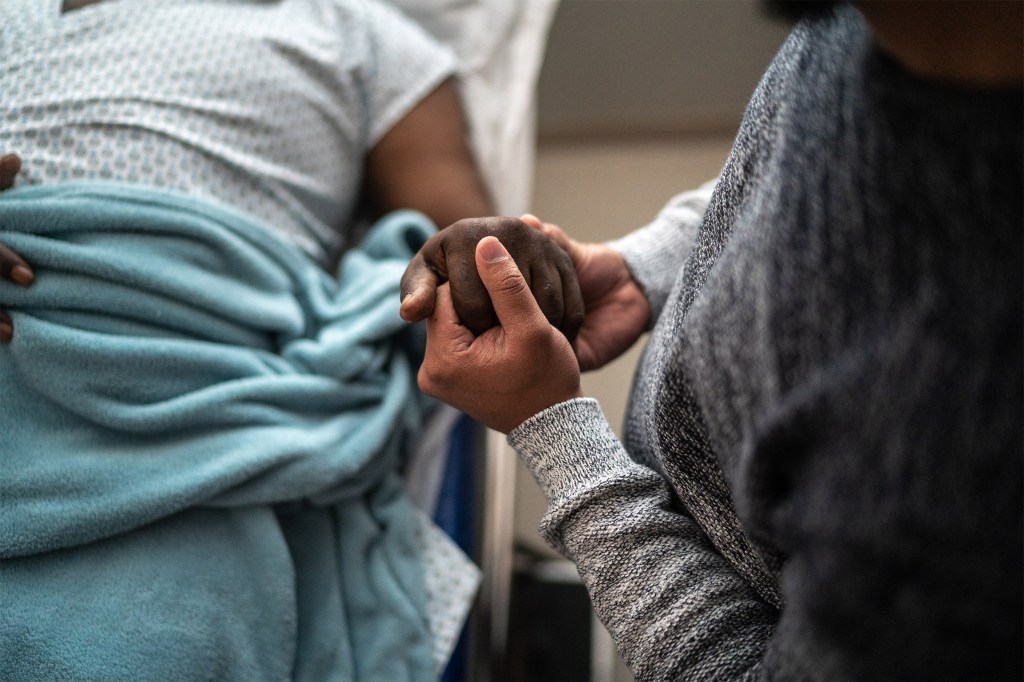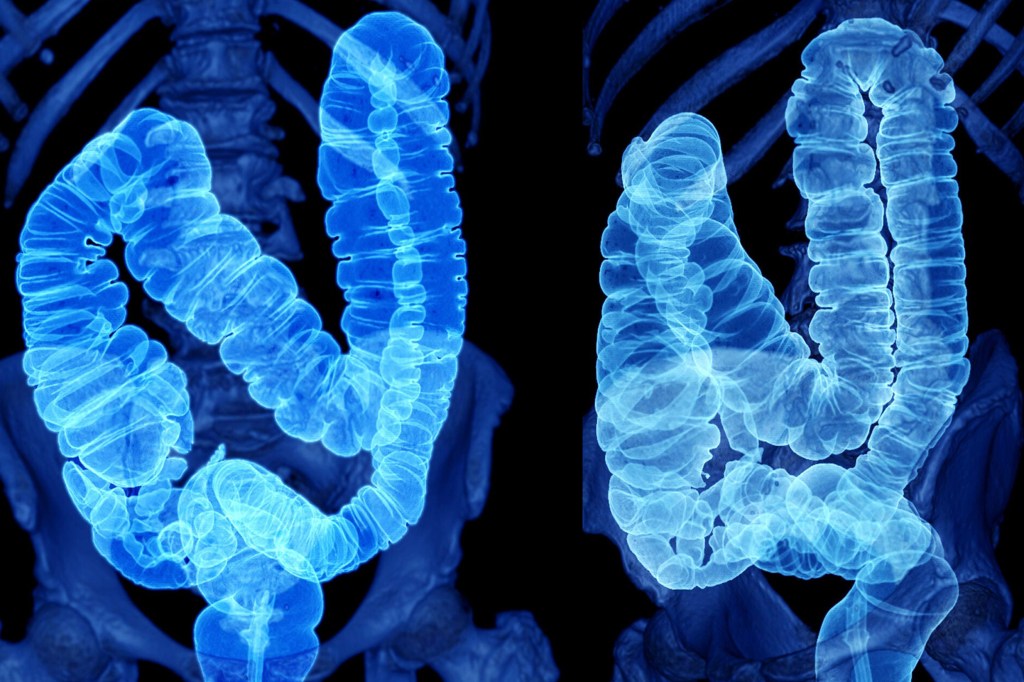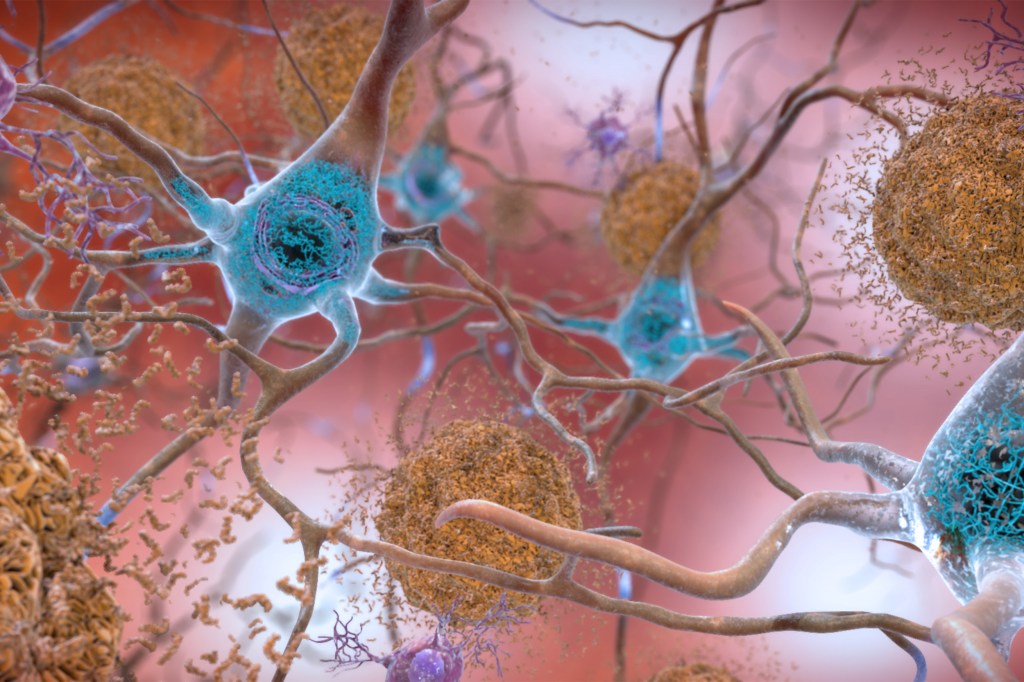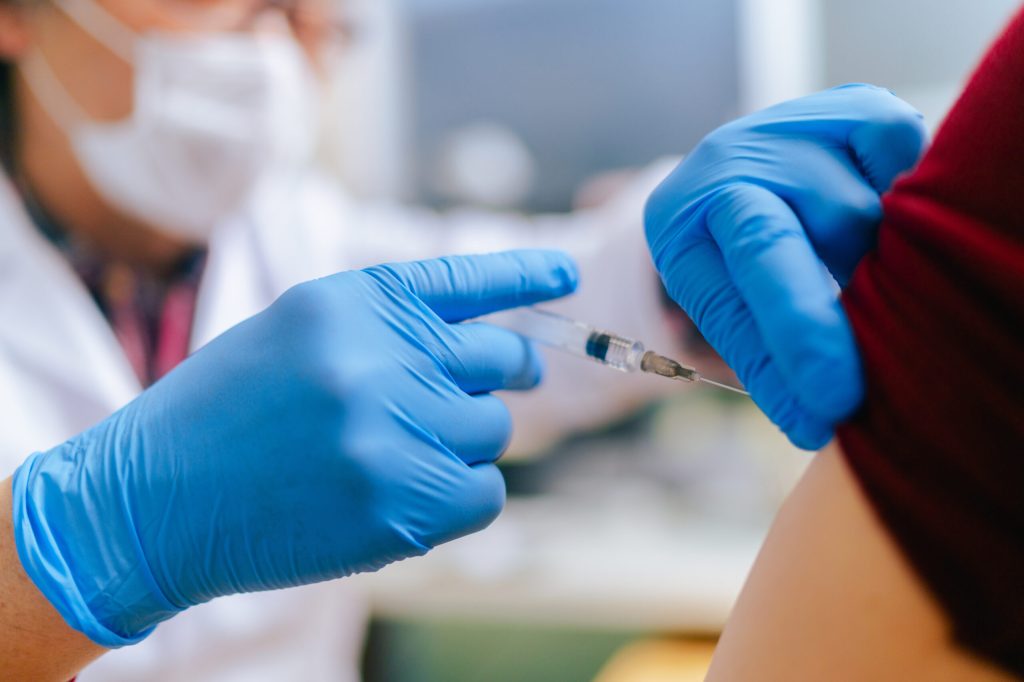Health
-

Six cancers rising faster in younger adults than older ones
Large new global study fuels growing concern over trend of increases in several types

-

What’s next for GLP-1s?
Scientists eye new treatment targets for popular weight-loss drugs, from heart failure to addiction
-

Pricey blockbuster GLP-1s are costing users — and most of the rest of us, too
Health insurers are passing along cost for coverage in form of higher rates across the board, policy researcher says
-

Drinking 2-3 cups of coffee a day tied to lower dementia risk
Caffeinated tea also found to slow cognitive decline in study

-

New AI tool predicts brain age, dementia risk, cancer survival
Unlike other AI models, BrainIAC needs limited data to ID key neurological health indicators

-

It’s time to get more comfortable with talking about dying
Palliative care physicians offer advice for end-of-life conversations between patients, loved ones
-
Can music improve our health and quality of life?
New research shows the use of music interventions — listening to music, singing, and music therapy — can create significant improvements in mental health, and smaller improvements in physical health-related quality of life.

-
Breast milk tied to better outcomes for preemies
A 7-year study shows benefits in academic achievement and other neurodevelopmental measures.

-
Spirituality linked with better health outcomes, patient care
Spirituality should be incorporated into care for both serious illness and overall health, according to a study led by researchers at Harvard T.H. Chan School of Public Health and Brigham and Women’s Hospital.

-
Alzheimer’s disease biomarkers can predict post-op delirium
Researchers have found a way to predict if an Alzheimer’s patient will develop postoperative delirium, a common complication in older patients.

-
Drivers who are frustrated, distracted, mad — and somewhat rusty
Traffic stats show that roadway deaths spiked during the pandemic. Can it be that we were not only distracted and frustrated, but also out of practice?

-
Coffee is good for you, probably
A recent study says you may not need to drink coffee without sugar to gain the health benefits. HMS’ Christina Wee discusses the state of science on coffee’s attributes as a health drink.

-
Thunderstorm asthma
A new study reports an increase in cases of “thunderstorm asthma,” putting allergy and asthma sufferers on alert.

-
Psychologist for back pain?
Low back pain is a leading cause of disability worldwide. Studies suggest best treatment combines physical, behavioral therapy.

-
Sifting the damage of pandemic-era drinking
As studies signal serious health consequences, specialists scramble to treat acute cases and reinforce limits that define moderate use.

-
Optimism lengthens life, study finds
Women who reported a positive outlook were likelier to live past 90, regardless of race or ethnicity.

-
Fight, flight, or freeze: how our bodies respond to doomscrolling
Experts examine how our bodies respond to doomscrolling.

-
New tool models evolution of opioid crisis
To help combat the opioid crisis, researchers have developed a tool, known as SOURCE, which taps national data on opioids to track stages of use and misuse, including use initiation, treatment, relapse, and death by overdose.

-
Poverty linked to worse outcomes in pediatric cancer
Race, ethnicity, poverty linked to worse outcomes in children treated for high-risk neuroblastoma, according to new study.

-
Longevity starts when we’re young
A new study shows that health and habits as children and teens affect not only health as adults, but lifespan.

-
Don’t let latest COVID surge overshadow progress, says Hanage
Harvard T.H. Chan School of Public Health Professor William Hanage explains how to stay on guard against subvariants, noting role of protective measures in transition to new pandemic phase.

-
Researchers find sleep benefit in higher dose of melatonin
In a small study of healthy adults aged 55 and older, 5 mg of melatonin increased total sleep time compared to a placebo.

-
How to cope with baby formula shortage
Harvard expert offers tips and cautions should the baby formula shortage hit home.

-
U.S. heart attack death rate among highest
Across the six high-income countries reviewed, the U.S. heart attack death rate was among the highest, even with adherence to recommended treatments and faring well on other measures.

-
Grandma’s workouts may have made you healthier
Researchers found that grandmothers’ exercise habits likely impact their grandchildren’s health.

-
Sorry, fries are no match for almonds
A Harvard expert challenges a new study that suggests there is little difference between eating a 300-calorie serving of french fries and a 300-calorie serving of almonds every day for a month, in terms of weight gain or other markers for diabetes risk.

-
How a bioethicist and doctor sees abortion
Director of Medical School’s Center for Bioethics discusses ethical dimensions of abortion and how a ruling against Roe might affect providers.

-
Women can reduce risk of colon cancer
Researchers found a lower risk of colorectal cancer in women who started endoscopy screenings at age 45 compared to those who had not undergone screening at all.

-
Examining a lesser-known dementia driver
A fourth disorder that causes dementia has been added to the list. It’s called LATE and is estimated to cause about 15 to 20 percent of all dementias.

-
How to break a bad habit
Harvard experts say breaking an unhealthy habit can be done. It takes intent, a little white-knuckling, and some effective behavior modification techniques.

-
Hallmarks of Alzheimer’s found well before diagnosis
A new study shows the impact of early amyloid-β and tau protein accumulation on disrupting brain connections important for memory. These disrupted connections were present even before signs of cognitive impairment were observed.

-
Skull channels shown to protect brain from infection
Researchers have found that “brain water” can exit through tiny channels to reach the skull’s bone marrow, which can detect infection or injury.

-
Subvariants cause for alarm, hybrid immunity hard to beat
Harvard scientists give their read on recent COVID data from the U.S. and South Africa.

-
Snapshot of pandemic’s mental health impact on children
Psychiatric epidemiologist warns crisis too recent for conclusive results but shares some surprising, troubling early indications.

-
It may be increasingly legal, but it doesn’t mean cannabis is safe
Neuroscientist says the jury’s still out on effects on neurodevelopment of fetuses, teens.

-
In Alzheimer’s victims, somatic mutations are both more and different
A new study by Harvard-affiliated researchers finds that patients with Alzheimer’s disease have both more and different somatic mutations — alterations in DNA — in their brain cells than people without Alzheimer’s disease.



